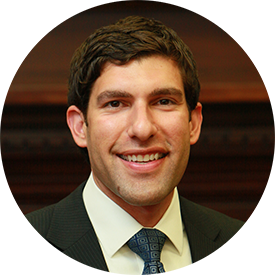Personal Wealth Management /
Remembering James Hillman
One of the titans of 20th century of psychology has passed, but his work will stand for years to come.
One of the titans of 20th century psychology, James Hillman, died on October 27th after a long battle with bone cancer.
I didn’t know him personally, only as a teacher and intellectual guide, and only briefly at that. In his last productive days, he would occasionally come to seminar lectures where I studied psychology and talk extemporaneously on whatever happened to be on his mind and have lunch with us in the breezy afternoons between classes down in Carpinteria, California. But I’ve read every darn word I could ever find about him, and reread him often still, and find his views powerfully relevant to investing.
A gentle and sweet man, Hillman seemed to grow in the classroom: A stern, powerful, authoritative and marshal figure of indefatigable strength emerged when he addressed a group. It was as if Ares himself took hold of his voice in those moments, some power other than himself speaking through his slight frame.
Initially, he terrified me. The first time I lunched with him, I hesitated, pushing around the salad on my plate, finally asking, “What do you think of the psychological value of hope, Mr. Hillman?” He said, “I do not like hope. It is an illusion—a psychological fantasy. Hope creates an expectation, and I see little need of such a thing.” That little quip, I’ve found, is as good as any in describing the way Hillman looked at the world.
So, what shall we say about his ideas? His work tended toward subtlety, depth and complexity—and so trying to reduce him here would be folly. But maybe we can say this much: Mr. Hillman understood the human imagination as the most important feature of the psyche; and that thoughts, though not tangible, were indeed “things,” “facts” in themselves. “If you are still being hurt by an event that happened to you at twelve, it is the thought that is hurting you now,” he said. I can’t think of a better way to view finance and money itself. Money is an idea—a communal belief. And few things are more powerful; our collective belief in money makes the world go round.
But, most importantly, to my mind, Hillman railed against many modern views of psychology. Specifically, today’s striving so desperately after psychology as a medical science. He hated that modern empiricism and pharmacology tried to “cure” all psychological ills. He said, “We approach people the same way we approach our cars. We take the poor kid to a doctor and ask, ‘What's wrong with him, how much will it cost, and when can I pick him up?’” What if, instead, we approached our psychological symptoms with depth—what if we allowed the many beings of our psychological lives to have their territory, to change us, to see what the psyche (conscious and unconscious) really wants of us? What if, instead of trying to mitigate feelings of loss and sorrow, we took them on their own terms and allowed them their space? “Depression opens the door to beauty of some kind,” Hillman wrote. How has anyone ever truly grown without treading in the underworld at some time or another? In this, Hillman used the panoply of world myths to illustrate his points and was a master scholar in Greek myth and philosophy.
To my view, an assimilation of Hillman is necessary to understand capital markets. At heart, Hillman’s work sets the stage for a kind of self awareness that is imperative for successful investing but far more artful and intimate than the work of Daniel Kahneman and the like. More, his ultimately Platonic view of forms and archetypes is a must for thinking through the inherent cycles and movements of economies over time. And, most importantly, Hillman approached the universals of the human psyche in a way that is more informative, profound and insightful for investors than any behavioral psychology I know.
Hillman wrote a few bestsellers, including his 1997 book, The Soul’s Code. But he’s best known for his masterwork, Re-Visioning Psychology in 1975, which was nominated for the Pulitzer Prize. Here is a selection of his many books, in order from top to bottom of my personal preference.
· Healing Fiction
· Re-Visioning Psychology
· The Soul’s Code: On Character and Calling
· A Blue Fire: Selected Writings of James Hillman
· The Force of Character
· Kinds of Power: A Guide to its Intelligent Uses
· The Dream and the Underworld
· Senex and Puer
· Anima: An Anatomy of a Personified Notion
· The Thought of the Heart and the Soul of the World
· Suicide and the Soul
· The Myth of Analysis: Three Essays in Archetypal Psychology
· A Terrible Love of War
· City and Soul
If you would like to contact the editors responsible for this article, please message MarketMinder directly.
*The content contained in this article represents only the opinions and viewpoints of the Fisher Investments editorial staff.
Get a weekly roundup of our market insights
Sign up for our weekly e-mail newsletter.

You Imagine Your Future. We Help You Get There.
Are you ready to start your journey to a better financial future?

Where Might the Market Go Next?
Confidently tackle the market’s ups and downs with independent research and analysis that tells you where we think stocks are headed—and why.





